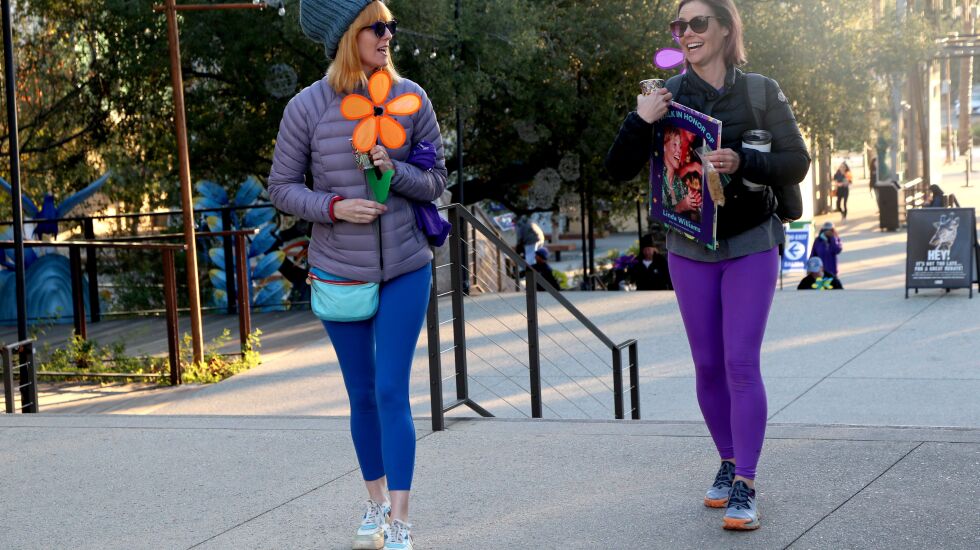
Throughout recent history, women have collectively enacted positive change on a host of different issues. From combatting breast cancer to preventing drunken driving, women have been involved in national movements that saved untold lives. Now, another crucial issue needs our attention: Alzheimer’s disease.
Why is it so important for women? Because we are among the most disproportionately impacted.
While Alzheimer’s affects individuals of all genders, races and ethnicities, women are nearly two times more likely to develop Alzheimer’s than men, according to the Centers for Disease Control and Prevention.
Equally troubling as that statistic is the fact that many women are unaware of it. A Cleveland Clinic survey found that 82% of women did not know they are at higher risk, even though women account for approximately two-thirds of Alzheimer’s cases in the United States. And 73% have not discussed their brain health with their physician, even though an almost equal percentage reported seeing a doctor within the last year.
Alzheimer’s disparate impact on women is not just limited to those living with the illness. The CDC estimates that women account for two-thirds of all Alzheimer’s family caregivers in the United States.
Speaking from the personal experience of caring for my mother and grandmother when they each lived with Alzheimer’s, being an Alzheimer’s caregiver is truly a labor of love. It also can be physically, mentally and emotionally challenging, all of which can increase a caregiver’s risk of developing health complications themselves.
The numbers, combined with the CDC’s projection that the number of Americans living with Alzheimer’s disease will grow significantly in the years ahead — from about 6 million today to 14 million by 2060 — highlight why we as women need to be actively involved in this fight.
Education and communication are two of the best ways to further empower women to face this issue. Not simply by highlighting the statistics, but by teaching them about steps they can and should take, such as making lifestyle choices to reduce their risk (good diet, regular exercise and social activity, and proper sleep are among them) getting regular memory screenings and connecting with caregiving support services.
This is a high-priority issue for people in the Chicago area, where I live, and for those elsewhere in Illinois. Illinois has more than 230,000 people living with Alzheimer’s, making it one of the states with the highest population of those affected. That number is expected to increase by more than 18% in just the next few years to 260,000.
November is Alzheimer’s Awareness Month, and the Alzheimer’s Foundation of America (of which I am a board member) wants to urge all women impacted by this disease to become educated about it and empowered.
The Cleveland Clinic survey found that over half of the women surveyed reported caring for others, with 43% of them saying they focus on other people’s health over their own. Single mothers report the lowest quality of sleep and are the highest percentage of women who rate their health as poor or fair (69%).
While providing care for loved ones is very important, you cannot provide the best possible care if you are not proactive about maintaining your own health. Many of the health factors affecting women can be adjusted if women are empowered with information. In fact, the majority of the women surveyed said they would take action if they were informed — they would stay mentally active, maintain a healthy weight, get better sleep and exercise regularly. Science now suggests that 40% of Alzheimer’s disease cases could be prevented through these healthy lifestyle modifications.
So many of us have already been touched by this growing public health crisis. Many more will be in the years ahead. While we search for a cure, let’s collectively commit to doing what we can today to address this issue that is critical for women’s health.
Luisa Echevarria is a board member of the Alzheimer’s Foundation of America and a former Alzheimer’s family caregiver. She is also the former director of community empowerment for Univision Communications Inc. and has won Emmy awards for public service campaigns and news production.
The Sun-Times welcomes letters to the editor and op-eds. See our guidelines.
The views and opinions expressed by contributors are their own and do not necessarily reflect those of the Chicago Sun-Times or any of its affiliates.







